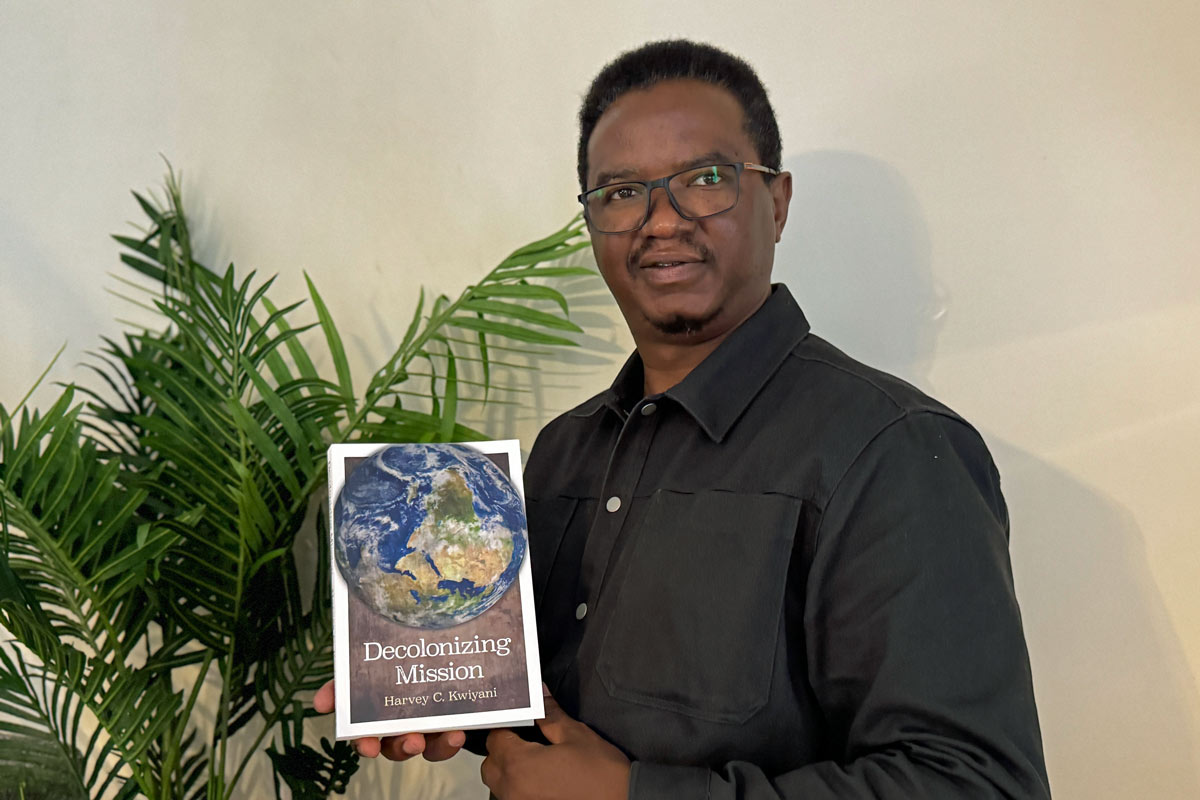Conversations day report: God and Empire
Acts 11 leader Dr Harvey Kwiyani reflects on the event
On 21 October, we hosted a Conversations Day at Church Mission Society in Oxford, focusing on the enduring challenge of imperialism in Christian mission.

by Harvey Kwiyani
In what felt providential, we placed my new book, Decolonizing Mission, in dialogue with David Smith’s recent work, God or Mammon. Both books explore the pervasive influence of empire – how systems of imperialism shape not only the world we inhabit but also the ways we live out our Christian faith.
The event’s format allowed David and me to offer brief introductory presentations, each seeking to distill the core arguments of our books in 15 minutes.
What struck many participants – and indeed us both – was how naturally the two books complemented one another, regardless of which one you start with.
As David observed, Mammon is often simplistically translated as “money,” though in Scripture it signifies something far more comprehensive.
“Money acts,” he wrote, “as both agent and symbol of a total worldview – one that dominates society and penetrates the inner core of human life, reshaping values and desires.”
When Jesus declares, “You cannot serve both God and Mammon,” he identifies a rival power whose reach parallels that claimed by God himself.
In Decolonizing Mission, I extend David’s argument, suggesting that this conflation of Mammon with God undergirds the imperialising tendencies that have long distorted the Christian missionary movement.
The day proved deeply inspiring, with several highlights.
My exchange with David – both in our mini-keynotes and during audience questions – felt organic and seamless, prompting some to ask whether we had rehearsed (we had not). In fact, we had met only once before, during my Global Connections years in Scotland.
I left the conversation pondering whether the two books could even be considered separately, as if one were not the natural continuation of the other.
I was especially struck by David’s connection between Mammon and the rise of techno-oligarchic capitalism – an economic order that shapes global systems today much as imperial structures did in the past, with profound implications for Christian mission.
Some of the most powerful moments came during the afternoon session, when four leaders engaged in mission across the globe reflected on what they had heard in the morning dialogue and how it resonated in their own contexts – the Netherlands, India, Peru, and South Africa.
- ‘Rachel’, CMS manager for Asia, spoke from her life across three continents – raised in Zambia, of Indian heritage, married in England, and now living and working in India. She offered a compelling reflection on the lingering legacies of British colonialism on Christian mission in India.
- Berdine van den Toren Lekkerkerker, who leads the Nederlandse Zendingsraad, shared insights from her work in theological education in the Central African Republic, reflecting on the power dynamics that continue to shape mission partnerships.
- Trizenia September, a senior manager with Mercy Ships in Africa, spoke of mission as the work of God’s kingdom and raised searching questions about the enduring effects of apartheid on Christian witness in South Africa.
- Paul Tester, CMS manager for Latin America, reflected on his years in Peru, affirming that authentic Christian witness in Latin America must reckon with the deep entanglements of money and power in mission practice.
Their contributions grounded the conversation in lived experience and made an already rich event even more meaningful.
I am aware that these are not easy discussions. One online participant observed, “We must thank CMS for courageously hosting this event and engaging in such a hard subject.” I could not agree more.
Yet, these conversations can only bear fruit if people continue to engage openly and honestly. It was therefore encouraging to welcome a group of German mission practitioners whose enthusiasm reminded us that the question of empire is not confined to Britain but speaks to the histories and responsibilities of Europe and North America alike.
I left the day with two pressing questions:
- If we succeed in disentangling mission from empire, what will the continued sharing of the gospel look like – and by what measure shall we call it “success”?
- What does this conversation mean for the way we teach mission today?
God, Mammon and Empire: a personal reflection
Dr Nuam Hatzaw of the Acts 11 team reflects on the recent conversations day from the point of view of her own family history.